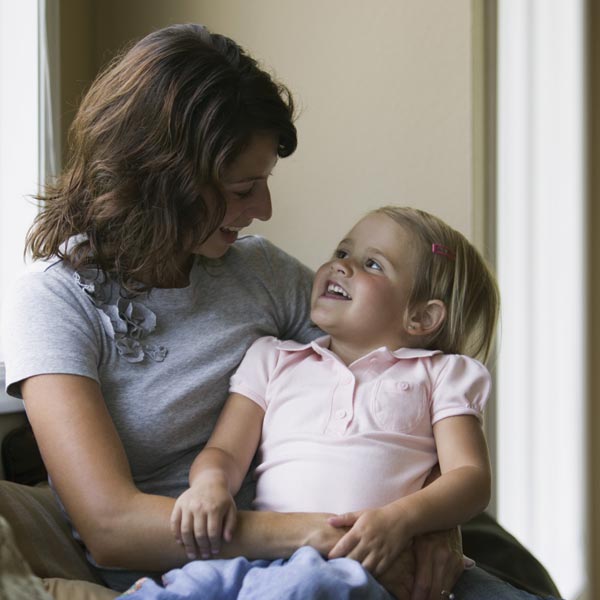It is important to begin talking about adoption from the moment your child comes home. Many of us have no choice — we must quickly become adept at answering questions from friends and strangers alike, often in front of our children, in an upbeat tone.
Even so, some new parents still worry about “explaining” adoption directly to their child. Relax. When it comes to those early talks, telling your child his adoption story should feel like just that — recounting a cherished tale — and these conversations can be deeply personal, happy experiences. While there are certain guidelines to follow in any adoption discussion, there are also decisions you’ll need to make regarding the language you’ll use, or which details you’ll highlight — the details that let you make the story your family’s own.
Do’s And Don’ts For Adoption Talks
DO start at the beginning. Tell your child that all children are born, and some of them are adopted.
DON’T use the word “you” when explaining the reasons an adoption plan was made. Emphasize that the birth family would have been unable to care for any baby or child. You don’t want the conversation to leave your child thinking that his first parent knew him and rejected him personally.
DO give a general overview of why some children are adopted. Begin by explaining that babies need care 24 hours a day. They need a place to live, food and clean water, medical care, and to be kept warm and safe. Explain that not all people who give birth to a baby can provide these things. Sometimes, when that is the case, a decision is made to find a new family who can give the baby all that he needs. This is called adoption.
DON’T equate the need for adoption with a simple lack of money. Many families innocently tell their young child that, when birth parents are too poor, their child has to go live with a new family. But this can cause the child to worry. If a parent loses a job, if there is worry over bills, if a toy is denied because “it costs too much,” maybe he will have to move again to a new family.
DO maintain a respectful and positive tone at all times. Anecdotal experience indicates that children who have a positive image of their birth mothers and of their biological roots have more self-esteem and a healthier self-image.
DON’T embellish or invent any details. When talking with a preschooler, it isn’t necessary to share all the specifics of their adoption, particularly if some are negative. But you must resist the urge to create a “pretty picture.” If you have no information, or negative information, stick to the basic explanation, which is that some parents cannot provide the care their baby needs. You will be retelling this story many times, and you can add details when your child can comprehend them. Assure your child that her birth family thinks of her and misses her, but is glad that she has a family that can take care of her.
Your Family’s Adoption Vocabulary
The words and phrases associated with adoption, and the way in which they are used by family, shape the way a child perceives her adoption experience. They become your family’s “adoption vocabulary.”
One of the first language decisions you’ll have to make is what to call the people who brought your child into the world. The standard, most formal term is “birth mother,” but many families use more personal (or casual) terms, like birth mom, first mother, other mother, bio(logical) mother, Chinese (or Russian or Ethiopian) mother, and so on. Families in open adoptions almost always refer to birth parents by their first names.
Some families start out by using “baby talk” names, such as “tummy mommy.” Keep in mind that whatever name you call this special person now will likely remain in use for many years. Consider how your 13-year-old might feel if his “tummy mommy” came up in conversation.
Young children can’t understand the intricacies of the adoption process, and may not be emotionally ready to absorb negative details, but a preschooler wants more than a bare-bones outline. Include a funny incident that happened on the way to the hospital, the fact that he was playing with the teddy bear you sent when you met him at the orphanage, or what you and Daddy said to each other the first time you held him, and it might become his favorite part of the story.


